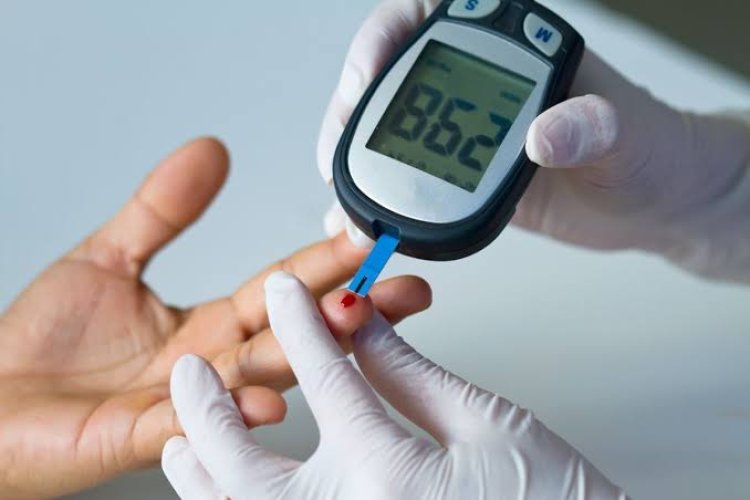Unraveling the Complexities of Diabetes: Understanding its Causes, Remedies, and Lifestyle Changes
At its pick lies a malfunction in the production of insulin by the pancreas. Insulin, the vital agent facilitating the body's utilization of glucose, when deficient, leads to a buildup of sugar in the blood.

diabetes stands as the formidable third-largest killer in the United States. At its pick lies a malfunction in the production of insulin by the pancreas. Insulin, the vital agent facilitating the body's utilization of glucose, when deficient, leads to a buildup of sugar in the blood. Consequently, individuals with diabetes resort to alternative energy sources like proteins and fat stores, leading to weight loss and weakness.
This condition also triggers increased hunger, often resulting in overeating. Moreover, diabetes unleashes a cascade of complications, affecting wound healing, susceptibility to infections, and various vital organs such as the eyes, kidneys, nerves, and heart.
Contributing Factors:
Various factors can precipitate the onset of diabetes. Stress, obesity, pregnancy, and certain medications can all play pivotal roles. Additionally, dietary choices laden with sugar and white flour can exacerbate the risk. Surprisingly, even hypothyroidism and parasitic infections, especially in children, can serve as causative factors.

Natural Remedies:
Embracing a holistic approach to combat diabetes, incorporating natural remedies can significantly alleviate symptoms and enhance overall well-being. Here are some practical steps:
Dietary Adjustments: Opt for smaller, well-chewed meals, avoiding late-night indulgences. Emphasize vegetable broths, fresh fruits, and a high-fiber diet to reduce reliance on insulin. Protein from vegetable sources and a fat-free regimen aid in blood sugar management.
Power of Raw Foods: Incorporating raw garlic and onions, alongside a diet rich in raw produce, can substantially lower blood sugar levels.
Essential Vitamins and Minerals: Supplementing with vitamins such as C, E, B6, B12, and minerals like chromium, magnesium, and zinc can enhance glucose tolerance and mitigate nerve damage associated with diabetes.
Herbal Allies: Explore the potential of herbs like fenugreek, onions, uva ursi, and huckleberry, known for their blood sugar-regulating properties.
Lifestyle Modifications:
Beyond dietary interventions and herbal remedies, lifestyle adjustments play a pivotal role in managing diabetes effectively. Here are some practical tips:
Exercise Regimen: Regular physical activity, especially aerobic exercises, aids in insulin sensitivity, facilitating glucose uptake by cells.
Stress Management: Incorporate stress-reducing practices like deep breathing and outdoor activities to mitigate the impact of stress on blood sugar levels.
Hygiene and Body Care: Opt for colon-cleansing enemas, hot baths, and cold showers to assist the body in eliminating toxins and regulating blood sugar levels.
Type II Diabetes Management:
For individuals grappling with non-insulin dependent diabetes, adopting a comprehensive approach is paramount:

Nutritional Balance: Prioritize whole foods rich in fiber and nutrients, while steering clear of sugary and fatty indulgences.
Chromium Supplementation: Consider supplementation with chromium polynicotinate to support glucose tolerance.
Herbal Support: Explore the potential benefits of hypoglycemic herbs like garlic, olive leaf, bilberry, and mulberry leaf in managing blood sugar levels.
By integrating these natural remedies and lifestyle modifications, individuals can embark on a transformative journey towards better diabetes management and improved overall health. Remember, proactive self-care and informed choices serve as the cornerstone of diabetes management, empowering individuals to reclaim control over their health and well-being.












